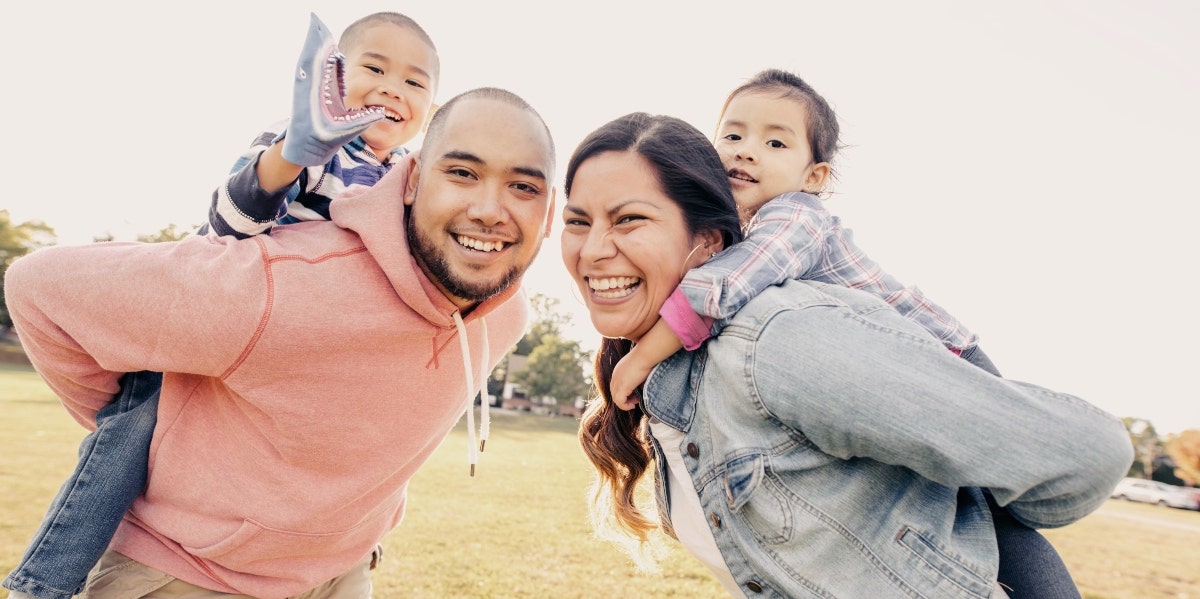Why You Should Make Mindfulness A Family Activity
What is mindfulness and why should you do it as a family?
 getty
getty Mindfulness is something we all need right now.
As a therapist who often works with the whole family, I'm a firm believer in something called "co-regulation."
This means trying to figure out ways to have a family learn how to cope together, which can help regulate everyone's emotions together.
Teaching our kids how to cope with stress and discomfort is key.
These kinds of strategies can be used with young kids instead of "time outs," and can be used with older kids as a way of bonding, through something like yoga, meditation, mindfulness, journaling, coloring, cooking, or other activities that can help them cope.
Particularly, in our stressful and unpredictable world these days, finding ways to help our children and teens cope is crucial.
Even more, finding ways to help parents cope and keep their cool under stress is even more important!
Modeling healthy ways to handle stress.
As parents, we set the tone in our family and as such, it's important to consider how we're handling stressful situations and what we're modeling.
If we can model coping responses, it's much more likely that our children and teens might use them, as well.
Mindfulness is the perfect activity to do as a family so that you can all learn together how to calm your minds, thoughts, and feelings when in distress.
You might be wondering just what mindfulness is, exactly?
Particularly since it's such a buzz word these days, mindfulness simply means bringing to the front of your attention what you're feeling and sensing, at the moment, without any sort of judgment.
Pretty much, it means approaching your current situation with curiosity and a lack of defenses, so that you can feel it fully but not attach words like "good" or "bad" to it.
While mindfulness itself is about the present moment and how you react to it and learn to experience it, when you practice it consistently, it also helps you relate to your current situation differently and become less reactive and more regulated, emotionally.
This is the difference between noticing you're angry and instantly judging yourself for feeling that way, or judging the situation that led to you feeling that way.
Using mindfulness helps you notice that you're angry so you can accept that reality and wonder why. In this way, you can cope more effectively.
Our resistance to and judgment of our emotions and current situations are often more problematic for people than the actual emotions and current situations.
I like to use mindfulness with my clients to help them find acceptance, which leads to more effective and less-emotional coping.
If you would like to try mindfulness as a family, there are so many ways to do this!
Here are 4 simple and fun ways to start practicing mindfulness as a family.
1. Children’s books.
There are a lot of children’s books about this very topic, such as Meddy Teddy, which my toddler son loves.
2. Apps like Calm and Headspace.
These apps are relatively affordable and make following a mindfulness or meditation routine easy! Kids and teens often like them, as well.
3. Walking and noticing nature in a "mindful walk."
Most of us tend to listen to music, look at, or talk on our phones while walking. Instead, try a nature walk where you pay special attention to the natural world around you.
With kids, you can practice helping them observe what they see, and how their bodies feel while walking.
4. Yoga.
What better activity than yoga to help us root ourselves in the present moment and in our bodies? Yoga and mindfulness pretty much go hand in hand!
Almost any activity can be made into a mindfulness activity if you simply focus just on what you are doing in that moment.
You could even ask your children or teens to pay attention to their five senses and walk them through each one. This could work with cooking, walking, art activities, running, or even just sitting and breathing together.
Erica Wollerman is a licensed clinical psychologist who has held a passion for helping people since beginning her career in psychology in 2006. If you would like to read more about her work, check out Thrive Therapy Studio.

